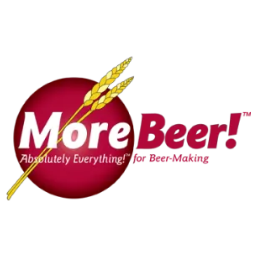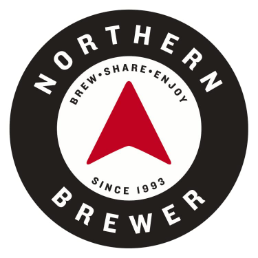Centennial Hop
| Purpose: | Dual |
|---|---|
| Country: | United States of America (USA) |
| International Code: | CEN |
| Comparison | Compare with other hops |
Purchase Centennial Hops
Centennial hops are available to be purchased at multiple suppliers. We've conveniently linked to the most popular hop suppliers as well as Amazon.com. Every supplier may have different prices, harvest years and amounts available for purchase.
Origin and Geneology of the Centennial Hop
Centennial hops were first bred in 1974 with a cross between a Brewers Gold and Fuggle hops. Other sources mention it was a cross between Brewers Gold, Fuggle, East Kent Golding, and Bavarian hops. It was named after the Washington State Centennial Celebration, which occurred in 1989, just before it was released to the public in 1990.
US hops begin to be harvested in mid-to-late August for most aroma varieties.
Flavor & Aroma Profile of Centennial Hops
Centennial is a dual-purpose hop that can be used in all hop additions throughout the brewing process.
Centennial hops are very similar to Cascade and are characterized by aromatic pine, citrus, and floral notes. It is characterized as having rounded and medium intense floral, citrus and grapefruit flavors and aromas. Other flavors of the Centennial hop include pine needles and tangerines.
Read More: The Most Common Hops Used in IPAs
Tags: #pine #citrus #floral #grapefruit #tangerine
Brewing Values for Centennial Hops
These are the common ranges that we've seen with Centennial hops over the years. Each year's crop can yield hops that have slightly different qualities, so these number ranges are based on history.
| Alpha Acid % (AA) Alpha acids are the main source of bitterness in beer. Longer boil times will result in isomerization of more alpha acids leading to increased bitterness. Learn more » | 7-12%9.5% avg |
|---|---|
| Beta Acid %Beta acids are a component of hop resins responsible for contributing volatile aromatic and flavor properties. Beta acids contribute no bitterness. | 3.5-5.5%4.5% avg |
| Alpha-Beta RatioThe ratio of alpha to beta acids dictates the degree to which bitterness fades during aging. 1:1 ratios are common in aroma varieties. | 1:1 - 3:12:1 avg |
| Hop Storage Index (HSI)The HSI indicates the percent of alpha and beta acids lost after 6 months of storage at room temperature (68°F or 20°C). The freshest hops will always be the best. | 29% (Good) 0.275-0.31 |
| Co-Humulone as % of AlphaLow cohumulone hops may impart a smoother bitterness when added to the boil as opposed to higher ones that add a sharper bitterness to the final beer. Learn more » | 23-30%26.5% avg |
| Total Oils (mL/100g)These highly volatile, not very soluble oils are easily boiled off, but add flavor and aroma to the finished beer when added very late in the boil or during fermentation. Learn more » | 1-3 mL2mL avg |
| Total Oil Breakdown: | |
| › MyrceneFlavors: resinous, citrus, fruity (β-myrcene) | 55-65%60% avg |
| › HumuleneFlavors: woody, noble, spicy (α-caryophyllene) | 10-20%15% avg |
| › CaryophylleneFlavors: pepper, woody, herbal (β-caryophyllene) | 5-7%6% avg. |
| › FarneseneFlavors: fresh, green, floral (β-farnesene) | 0-1%0.5% avg |
| › All OthersIncluding β-pinene, linalool, geranoil & selinene | 7-30% |
Hop Pairings with Centennial Hops
Some hops just taste better together. We recently analyzed [1] hundreds of the most popular beers to find which hops are commonly paired together. We found that Simcoe, Cascade, Columbus, Amarillo, Chinook & Citra hops are commonly used alongside the Centennial hop. This is not a complete list, but should give you a good idea of what hops are commonly used together.
Here is the relative frequency of the top 6 hops that are used with Centennial:
Beer Styles using Centennial Hops
Some popular beer styles that make use of the Centennial hop include Pale Ale, IPA & Wheat Beer.
Centennial is also sometimes featured as a single hop in beers to highlight its unique flavors and aromas. It can be added either as a fresh hop, or via hop pellets. Some popular examples of commercial beers that use 100% Centennial hops in their recipes are Bell's Two Hearted Ale & Founders Centennial IPA.
Centennial Hop Substitutions
If the Centennial hop is hard to find or if you are simply out of it on brew day, you can try to substitute it with a similar hop. The old way of choosing replacement hops was done by experience and "feel". There is nothing wrong with that way. However, we wanted to build a data-driven tool to find your Centennial substitutions.
Experienced brewers have chosen the following hop varieties as substitutions of Centennial:
Is Centennial available in lupulin powder?
Yes! There is a version of the Centennial hop in lupulin powder form. Centennial lupulin powder is suggested to be used at about half the amount as you'd normally use with pellets. The Cryo/LupuLN2 (Yakima Chief Hops), Lupomax (Haas) and Hopsteiner products are pure concentrated lupulin powder, which add big flavor when used in the whirlpool or dry hop additions.
Centennial Hop Statistics
We love statistics. We've analyzed hundreds of IPAs, dug into the Hop Growers of America's annual reports[2] and researched the history behind some of the most popular beer ingredients. Here are a few of the things we've found interesting about the Centennial hop:
- In 2019, Centennial was the 6th most harvested hop in the US.
- Production of the Centennial hop increased by 26% between 2014 and 2019.
Embed This Information
You can embed the information we have on the Centennial hop on your own website. Just copy the code below and paste it anywhere on your site.
<div class="bmhop" data-hop="26"></div> <script src="https://beermaverick.com/embed.js?v1"></script>
If you see an error in our data, please let us know!
We are not affiliated with any hop manufacturer. All copyrights and data are provided by their respective owners.







